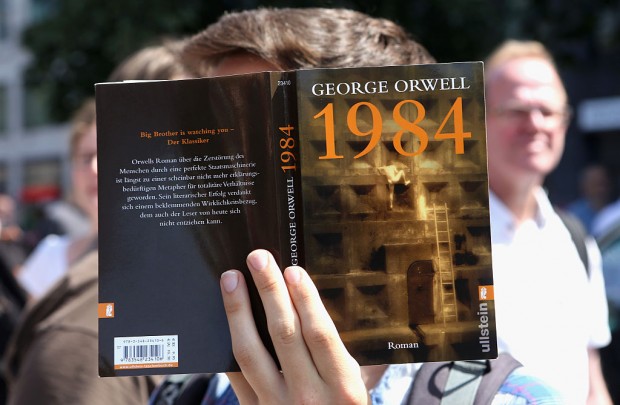As my daughter was preparing for her AS level exam on 1984 this week, George Orwell’s dystopian classic loomed back into a news headline: ‘We are not the Thought Police, Chief Constable Tells Government’.
Leicestershire chief constable Simon Cole, who’s in charge of the anti-radicalisation Prevent programme, told the press that the Government’s new counter-extremist and safeguarding bill risked asking the police to dictate “what people can and cannot say”. The top cop was adamant that “We absolutely don’t want to be the thought police.”
Well, (to borrow from another literary classic, Evelyn Waugh’s Scoop): Up to a point, Lord Copper.
The police may feel uncomfortable about being tasked with explicit political censorship. But elsewhere they are in the front line of the new free speech wars, leading the crusade against speech deemed merely offensive rather than extremist.
For example, the Greater Glasgow Police (who some might imagine would have their hands full pursuing actual offenders) recently tweeted a warning to all social media users: ‘THINK before you post or you may receive a visit from us this weekend.’ The force spelt out what it wanted Glasgow tweeters and posters to THINK about in order to avoid the knock on the door:
T – is it true?
H – is it hurtful?
I – is it illegal?
N – is it necessary?
K – is it kind?

Saying something the police consider ‘hurtful’ or ‘unkind’ is thus put on a par with doing something illegal. As for arresting social media addicts for ‘unnecessary’ posts, they are surely going to have to open special detention camps for all those who bore the world with pet videos every weekend.
This the face of the new Thought Police, seemingly more comfortable patrolling the tweets than the streets, inventing speech crimes rather than investigating real ones, ready to equate ‘offensive’ words with criminal offences.
Little wonder, then, that there are now more people being arrested and imprisoned for what they say or write in the UK than at any time since the eighteenth century.
In this war against offensive opinions, the force are often following the lead of the unofficial Thought Police, the online twitch-hunters and ban-happy student crusaders who march across the internet and university campuses behind banners emblazoned with the slogan: ‘You Can’t Say That!’
The combined forces of the official and unofficial censors have given rise to a third threat to free speech today: the Thought Policeman within. Self-censorship is now rampant among people unsure of which opinions it is still considered correct to express, or even which words they might be permitted to use.
Back in 1984, Big Brother’s enemy Emmanuel Goldstein explains that the job of the Thought Police is not just to punish those who say the wrong things, but to encourage the rest to practise ‘crimestop’: ‘the faculty of stopping short, as though by instinct, at the threshold of any dangerous thought… Crimestop, in short, means protective stupidity.’
Faced with the ‘protective stupidity’ promoted by the Thought Police at the door and in your head, we would do well to recall Orwell’s own opinion from the preface to Animal Farm (considered so ‘offensive’ at the time that the publisher refused to include it): ‘If liberty means anything at all, it means the right to tell people what they do not want to hear.’
The new concise edition of Mick Hume’s book “Trigger Warning: is the fear of being offensive killing free speech?” is published by William Collins, £6.99






Comments